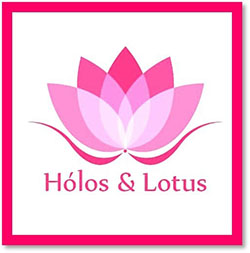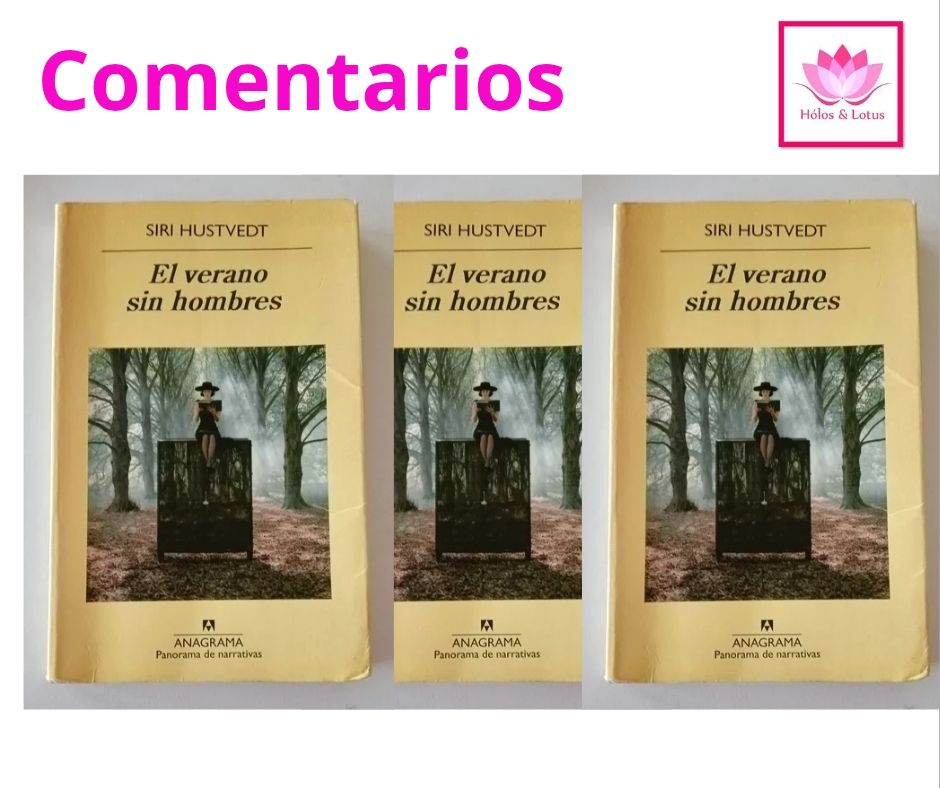
Saludos amigos de @holos-lotus.
Anoche terminé de leer, *El verano sin hombres* (2011). Una novela de Siri Hustvedt, escritora estadounidense reconocida por la crítica literaria internacional.
Antes de pasar a hablar de la novela, de lo que me impactó y me dejó, quiero hacer un comentario previo y comienzo con unas preguntas que me han estado rondando: ¿Por qué entre tantos libros que hay en la biblioteca de mi hijo fui directamente a este, por qué su título me enganchó y por qué disfrute tanto su lectura?
Para las dos primeras preguntas no hay mucho en que profundizar, el título va en correspondencia total con mi vivencia actual, estoy visitando a mis hijos en la época de verano y estoy sin mi pareja, por lo que su escogencia no fue casualidad sino como prácticamente todo en esta vida: causalidad, pero aún así no deja de llamarme la atención que fui directo él. Entremos en la novela.
Estructuralmente, la novela es una locura, dentro de una linealidad forzada salta en los tiempos, de pronto de un presente inmediato nos lleva a un pasado reciente, proyectándose en un futuro de expectativas inminentes y eso me encantó, es la dinámica del pensamiento que va y viene como mejor le parece ubicándonos en un ahora con todo lo que hemos sido, somos y esperamos ser.
Hay tres personajes principales: la protagonista, narradora y centro que se cuela entre el grupo de amigas su madre, todas cercanas o ya pasadas de los ochenta años, paralelo a ello, a través de un taller de poesía que dicta a siete muchachas adolescentes completan un cuadro que nos hace viajar a los distintos periodos de la vida.
Vamos con la trama y su hilo conductor. Mia, personaje central, acaba tener un colapso mental que la mantuvo recluida una semana en el psiquiátrico, ¿el motivo? Su amado esposo, después de más de treinta años de casados, le ha pedido una ‘pausa’, la pausa tiene cuerpo y nombre.
Para levantarse y recuperarse ha decidido pasar los tres meses de verano, en una casa que alquila cerca de su madre, quien vive en un apartamento independiente dentro de un ancianato donde ha hecho amigas contemporáneas, en el mismo pueblo consigue que le den una plaza para dictar un taller de poesía a las adolescentes.
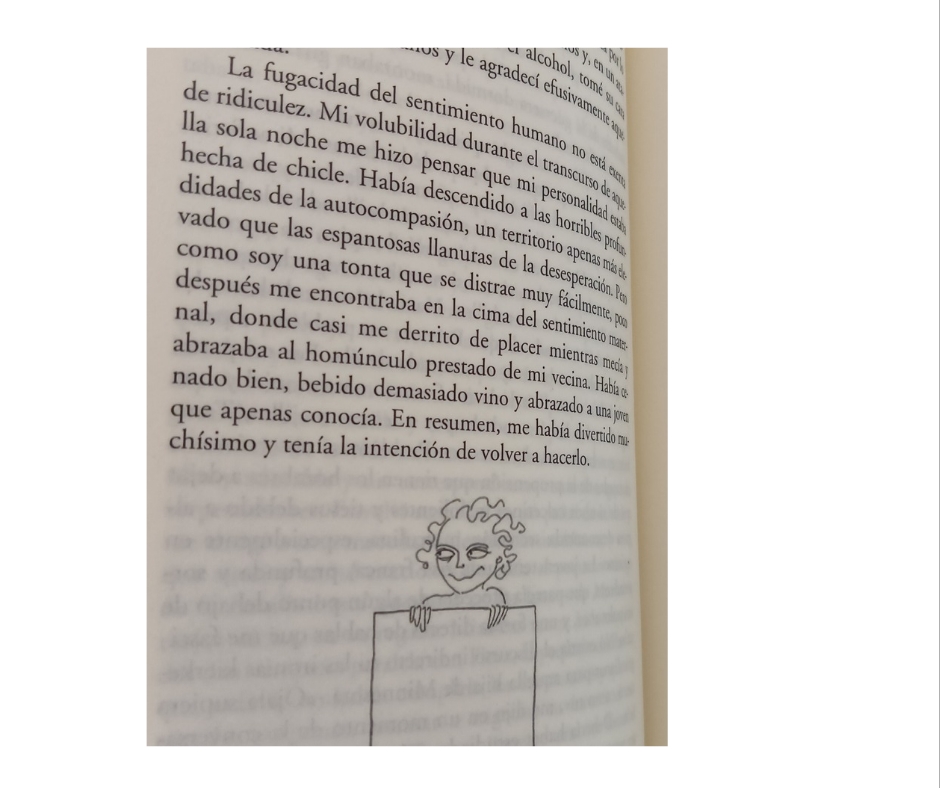
Si nos ponemos a ver el entorno es un círculo de mujeres, ¿es un libro feminista? No, aunque se pasea por algunos tópicos que rodean a la mujer en las limitaciones que la sociedad le ha impuesto a lo largo de la historia de la humanidad.
Es un libro de vida, de lo que sentimos, del común denominador de ser mujer en la adolescencia con sus altos y bajos, con la lucha de autodefinirnos. De la mujer adulta que ha construido y se desmorona. De la mujer mayor que siente el fin de la mortalidad.
¿Es un libro triste? No. ¿Es un libro de crecimiento personal? Depende de la perspectiva desde donde lees. Como les dije es un libro de vida y diversos aconteceres, pero estoy segura que en muchos párrafos encontrarás sentencias que te harán decir: aquí estoy yo.
Quizás estás frases que llamaron mi atención te inviten a una reflexión:
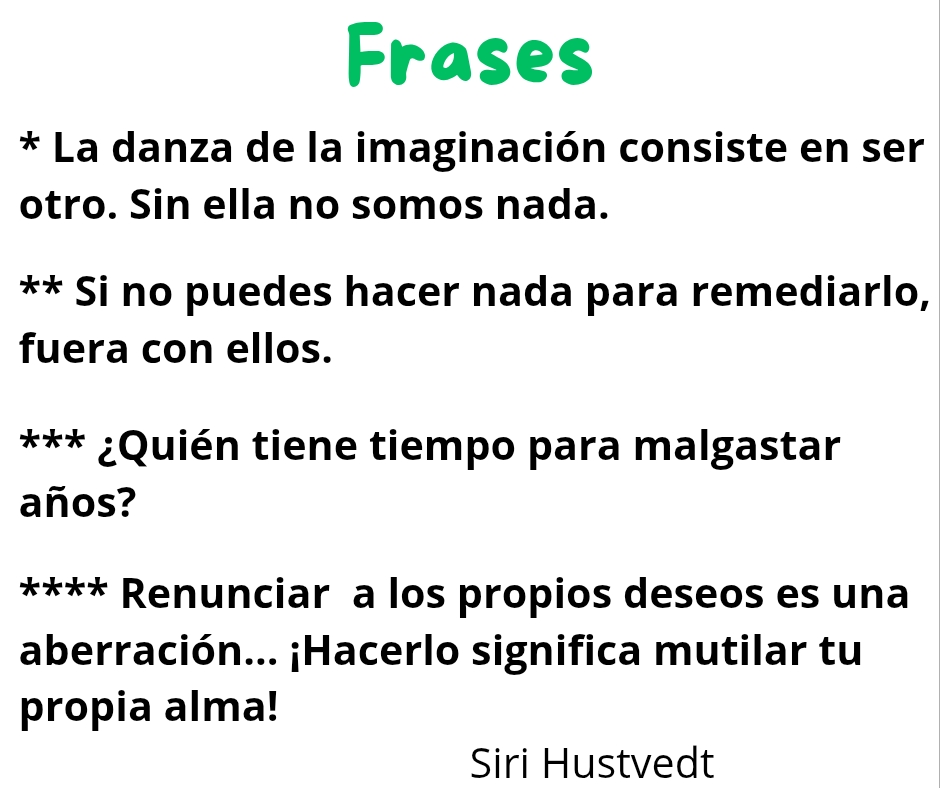

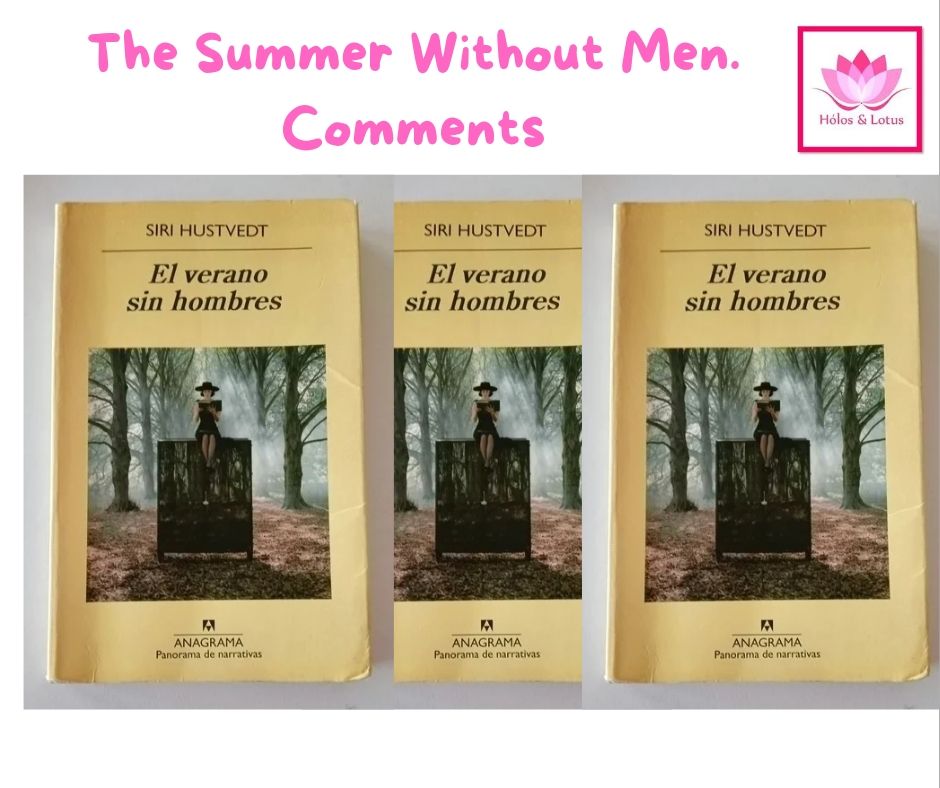
Greetings, friends of @holos-lotus.
Last night I finished reading The Summer Without Men (2011), a novel by Siri Hustvedt, an American writer recognized by international literary critics.
Before talking about the novel, what struck me and left an impression on me, I want to make a preliminary comment and start with some questions that have been on my mind: Why, among all the books in my son's library, did I go straight to this one, why did the title hook me, and why did I enjoy reading it so much?
The first two questions are easy to answer: the title corresponds perfectly with my current experience. I am visiting my children during the summer and I am without my partner, so my choice was not accidental but, like practically everything in life, coincidental. Even so, it still strikes me that I went straight for it. Let's dive into the novel.
Structurally, the novel is crazy. Within a forced linearity, it jumps through time, suddenly taking us from the immediate present to the recent past, projecting itself into a future of imminent expectations, and I loved that. It's the dynamic of thought that comes and goes as it pleases, placing us in the now with everything we have been, are, and hope to be.
There are three main characters: the protagonist, narrator, and center who sneaks into the group of friends, her mother, all close or already over eighty years old. Parallel to this, through a poetry workshop she teaches to seven teenage girls, they complete a picture that takes us on a journey through different periods of life.
Let's move on to the plot and its central theme. Mia, the central character, ends up having a mental breakdown that keeps her confined to a psychiatric ward for a week. The reason? Her beloved husband, after more than thirty years of marriage, has asked her for a “break,” and the break has a body and a name.
To get back on her feet and recover, she decides to spend the three summer months renting a house near her mother, who lives in an independent apartment within a retirement home where she has made friends of a similar age. There, she manages to secure a position teaching a poetry workshop to teenage girls.

If we look at the setting, it is a circle of women. Is it a feminist book? No, although it touches on some of the issues surrounding women and the limitations that society has imposed on them throughout human history.
It is a book about life, about what we feel, about the common denominator of being a woman in adolescence with its ups and downs, with the struggle to define ourselves. About the adult woman who has built herself up and is falling apart. About the older woman who feels the end of mortality.
Is it a sad book? No. Is it a book about personal growth? It depends on your perspective. As I said, it is a book about life and various events, but I am sure that in many paragraphs you will find sentences that will make you say: here I am.
Perhaps these phrases that caught my attention will invite you to reflect:
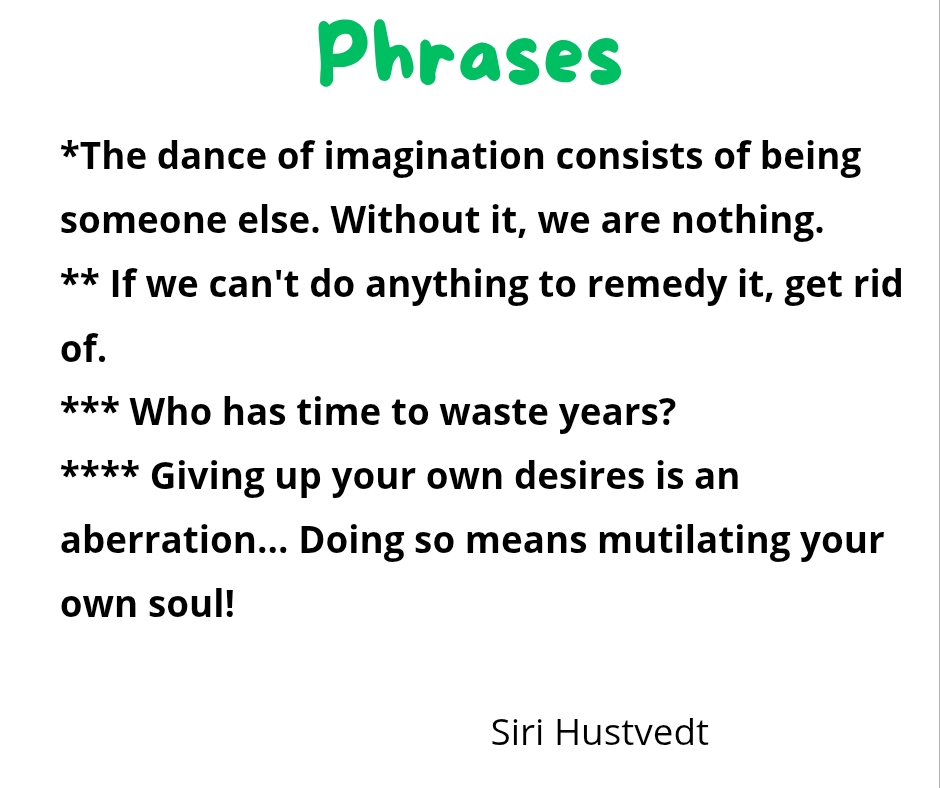

Translated with DeepL.com (free version) Fuente de imagen: Tomadas del libro de Siri Hustvedt. (2011). El verano sin hombres. Edit. Anagrama.



MIS REDES SOCIALES


